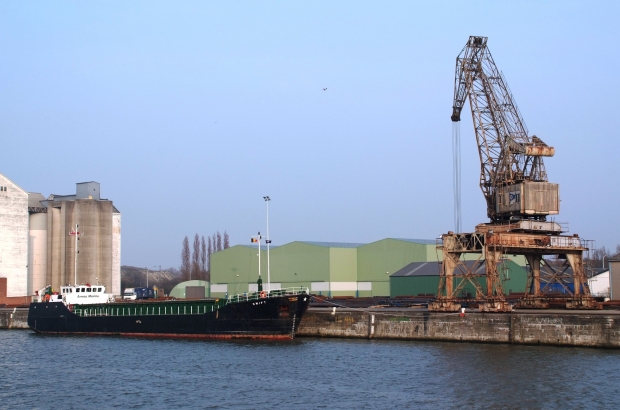- Daily & Weekly newsletters
- Buy & download The Bulletin
- Comment on our articles
Port of Brussels to be reconnected to Belgian rail network
The Port of Brussels will be reconnected to the Belgian rail network next year, following an agreement between the federal and Brussels governments.
Planning permission for the project was obtained this week and the connection should be operational by June 2024.
It is claimed that the result would be 18,500 fewer trucks travelling on Brussels roads every year and a doubling of rail freight by 2030, leading to improved air quality and traffic.
Freight transport currently accounts for 17% of the total kilometres travelled in the Brussels region, but is responsible for 29% of Brussels greenhouse gas emissions, 30% of particulate emissions and 41% of nitrogen emissions.
The deal comes as part of Brussels climate minister Alain Maron’s "Green Deal for low-emission urban logistics", which aims to make the Brussels urban economy more sustainable.
“The return of rail freight transport to the Port of Brussels was one of my objectives to reduce air pollution from road traffic,” said Maron.
“With the expansion of the container terminal, the development of urban distribution centres and now this rail link, we are reducing the number of trucks on our roads. This way, we can make Brussels a more pleasant place to live.”
The reconnection is to take place in several phases with works to begin in January 2024, effectively reopening a small branch line, called line 26A, connecting the port to Schaerbeek train depot.
In a second phase, the connection will be further extended and work will be carried out on signalling and electrification of the tracks. The cost for the first phase is €3.5 million, after which the amount rises to €7.7 million.
Brussels mobility minister Georges Gilkinet (Ecolo) and Brussels minister president Rudi Vervoort (PS) were both pleased by the news.
“The rail link to the Port of Brussels was stuck in a legal limbo for years – we have now been able to resolve this in consultation with Infrabel and the Brussels region,” Gilkinet said.
“This strategic connection, at the heart of Belgium and Europe, is also possible thanks to the additional funds we have released to revitalise rail in Belgium. The goal is clear: by 2030 we want to double the volume of goods transported by rail.”
Vervoort said he considers “a rail link to and from the Port of Brussels to be a key element of the environmentally friendly mobility policy advocated by this government” and that the connection “should make it possible to maintain a very strategic trimodal hub on the regional territory”.
The agreement was reached together with the Port of Brussels, Infrabel and landowner SFPIM Real Estate.

















